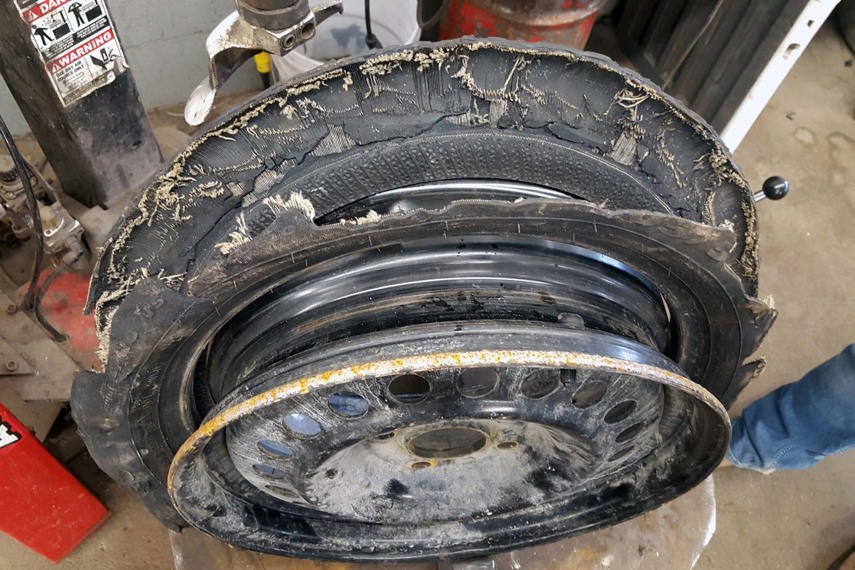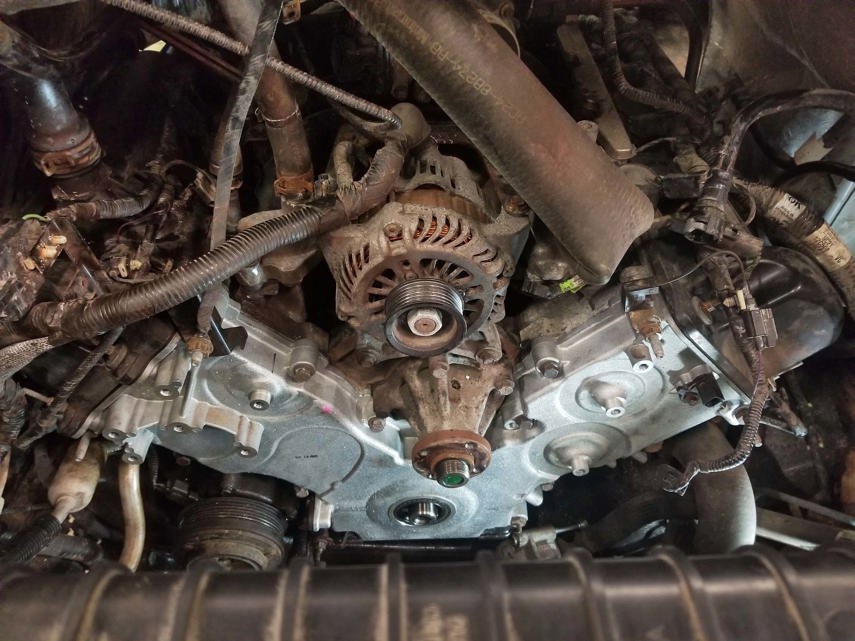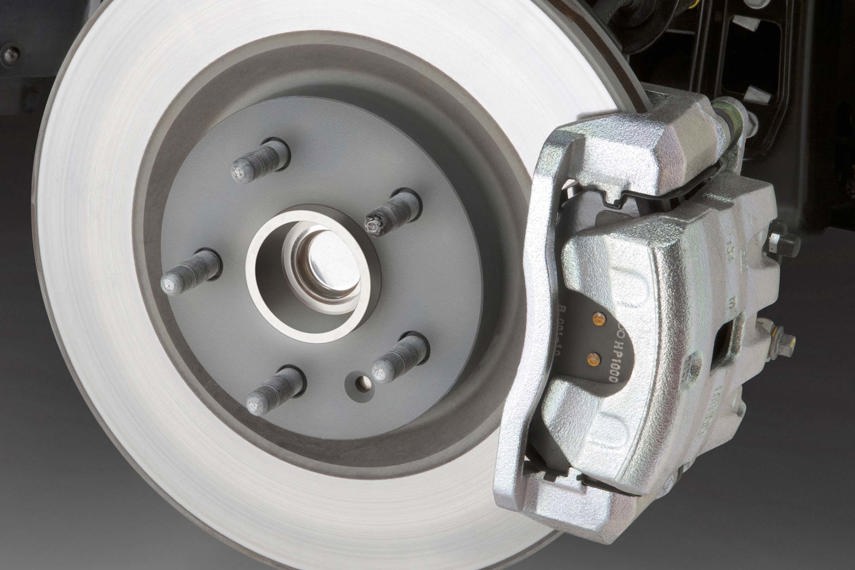We often form a special relationship with our vehicles that gives us a good sense of which sounds and sensations are normal and which ones are not.
Sometimes, your vehicle makes a noise you’ve never heard before in conditions that are definitely familiar. Sometimes, that’s a sign of trouble that you should probably do something about as soon as possible. After all, being proactive when something doesn’t seem right with how your car feels or sounds can save you money in the long term or even prevent an accident.
Below, we’ll look at some unusual sounds and sensations you should be concerned with, and a few that are no cause for alarm. Read on for the details, but remember this: if something seems out of the ordinary, it probably is – and your safety could be in jeopardy.
If in doubt, have your vehicle checked out by a professional.

Metallic Bang
Metal-on-metal banging when encountering certain (rough) road surfaces, likely from the underside of the vehicle.
Possible Causes
Metal on metal contact between one or more parts of your vehicle’s suspension and/or steering systems is likely to blame. Causes may range from worn suspension bushings to broken coil springs to badly worn ball-joints, and more. In some cases, this sound results from a broken or corroded part of the exhaust system, a loose spare-tire mount, or something else.
Additional Details
This sound may be more prevalent at certain speeds or over certain terrain. It may also be random. A sloppy or loose feel to the steering may also be observed. Take action immediately, especially if the offending metal-on-metal sound exists alongside a tactile sensation (like a banging or smashing sensation) you can feel in your feet, seat, or steering.
Potential Seriousness
High. This sound may be evidence of one or more problems with severe safety implications, so treat it very seriously and have your vehicle inspected professionally as soon as possible.

Dull Clunk
A dull, non-metallic banging or smashing sound, perhaps described as “loose lumber in the trunk” of your vehicle.
Possible Causes
If a recurring banging or smashing sound is observed from beneath your vehicle, but that sound is not metal-on-metal in nature, the culprit could range from an improperly secured mud-flap to a loose spare tire, to some cargo that’s sliding around in your trunk. It could also be evidence of a problem with your motor mounts, differential mounts, or suspension bushings.
Additional Details
This sound may only be noted in certain situations and likely comes from the underside of your vehicle.
Potential Seriousness
Depends. A sound like the one described here may be something minor, but could be something serious. Proceed with caution. Confirm that all luggage, cargo, and the spare tire and associated provisions are properly secured. If they are secured and the noise persists, have your vehicle inspected by a professional as soon as possible.

Growing Groan
A rubbing, groaning, buzzing sound while the vehicle is in motion
Possible Causes
You have a flat or very underinflated tire or a damaged piece of underbody cladding
Additional Details
If you observe this sound and it becomes increasingly louder the faster you go and is possibly accompanied by a dramatic change in steering feel and effort, then you’ve likely got a flat tire. If the sound doesn’t change much with vehicle speed or comes and goes somewhat randomly, a piece of the vehicle’s plastic underbody cladding may be broken or separated, causing it to contact the road or a tire. Many other causes of this sound are possible, too.
Potential Seriousness
This one’s moderate to severe. Stop immediately and assess your vehicle for signs of a flat tire or check to see if any part of the vehicle is hanging or dragging beneath it. Check all inner wheelwells for signs of damage or dislodged cladding.
Note that driving on a flat tire, even for a short period, can result in a serious accident. Driving with a loose piece of body cladding can damage other parts of the vehicle or cause harm to other motorists if the offending part becomes dislodged.
If you notice none of these issues but the sound remains, get to a mechanic, pronto. There could be a serious defect to some other part of your vehicle that you can’t see.

Lingering Whirr
A whirring sound, like an electric motor or fan, heard after the engine is turned off
Possible Causes
Normal operation of cooling fans, auxiliary pumps, air suspension, etc.
Additional Details
Many modern vehicles are equipped with cooling fans and other provisions that may, in certain situations, be operational after the ignition is turned off. Especially after a long drive, after towing, or on a very hot day, drivers may hear one or more of these provisions doing their jobs, even as they walk away from their parked vehicle. Vehicles with air suspension systems, and many hybrid cars, commonly emit noises for some time after they’re turned off, too.
Potential Seriousness
This is normal operation of the vehicle and is no cause for alarm. If, however, you start experiencing unwanted battery drain or dead batteries, have the vehicle checked professionally. Sometimes, faulty control software fails to turn the offending part off after the appropriate time, resulting in battery drain.

“Did You Hear That?” Clang
Random metal-on-metal clanging, not tied to certain speeds or surfaces, may sound like a metal part swinging around and hitting other metal parts.
Possible Causes
Something is loose, or partially detached, beneath your vehicle, exhaust system damage
Additional Details
Usually, this sound is exactly what it sounds like: something made of metal that’s come loose and is whacking into other things made of metal beneath your vehicle.
Potential Seriousness
Varies. At the first sign of this sound, pull over and check beneath your vehicle for signs of a loose or detached part that might be contacting the road or other parts of the vehicle undercarriage. Double-check externally mounted spare tire provisions and the vehicle’s exhaust system. Look into each wheel well, down through the engine compartment, and beneath the engine and transmission. Have a mechanic assess the vehicle as soon as possible if the cause isn’t apparent.

High-pitched Squeal
A scraping, scrubbing, whining, or squealing sound, often metal-on-metal in nature, possibly exacerbated when brakes are applied.
Possible Causes
Braking system issues
Additional Details
The sounds described above are typical indicators of one or more problems with your vehicle’s braking system. A high-pitched squeal observed during periods of non-braking or light braking, for instance, can tell the driver their vehicle needs new brake pads.
A heavy scraping sound and a “rough” or “sandy” sensation to a normally smooth brake pedal action often indicates a problem with other braking system components, possibly related to corrosion or wear. Have your brakes checked professionally as soon as possible.
If you detect a heavy scraping sound during braking, possibly accompanied by a mushy feel to the brake pedal and/or a tendency for the vehicle to pull to one side or the other, discontinue use of the vehicle until it’s been assessed by a professional.
Potential Seriousness
Severe. Stopping isn’t optional, so treat these common sounds of brake system problems seriously and have the vehicle checked out pronto. Even a minor problem with one part of your braking system can drastically reduce your vehicle’s ability to stop safely.

Sudden Burble
A gurgling, bubbling sound, like fluid and air bubbles passing through a plumbing assembly
Possible Causes
Your vehicle’s cooling system
Additional Details
At all moments while you’re driving, a stream of hot engine coolant gets circulated throughout your vehicle’s engine before it’s cooled by the radiator. The coolant is pumped through various components by way of a network of plumbing, valves, and pump(s). When you stop your engine, you stop the flow of coolant through it. Sometimes, the cooling system makes strange noises as it cools down. These are typically easiest to detect if you sit in your car for a few minutes after you turn the engine off.
Potential Seriousness
Normal operation. Some vehicle cooling systems can become quite vocal as they cool off, emitting plenty of gurgling, sloshing, belching sounds in the process. These sounds are largely considered a normal part of the operation of the cooling system and are no cause for alarm unless they coincide with one or more engine overheat events or a visible coolant leak.

Jingle-jangle
A metallic scraping/clattering/loose-change jingling sound in a manual transmission vehicle while stopped in neutral with the clutch released.
Possible Causes
The throw-out bearing needs replacement
Additional Details
Testing for this sound is easy. Make the vehicle’s cabin quiet, place the shifter in neutral, and slowly press and release the clutch several times. If the sound, as described above, goes away when the clutch is pressed and returns when it’s released, a new throw-out bearing is required. Check for clutch fluid leaks beneath the vehicle, too.
Potential Seriousness
This one’s fairly minor, but not to be ignored. A bad throw-out bearing may eventually cause a change in clutch pedal action and/or visible clutch fluid leaks. Eventually, an unrepaired and leaky throw-out bearing may lead to a non-functional clutch pedal, effectively rendering the vehicle undriveable. Start saving up: in many cases, you’re likely best to change the clutch when you change the throw-out bearing to eliminate redundant labour charges.

